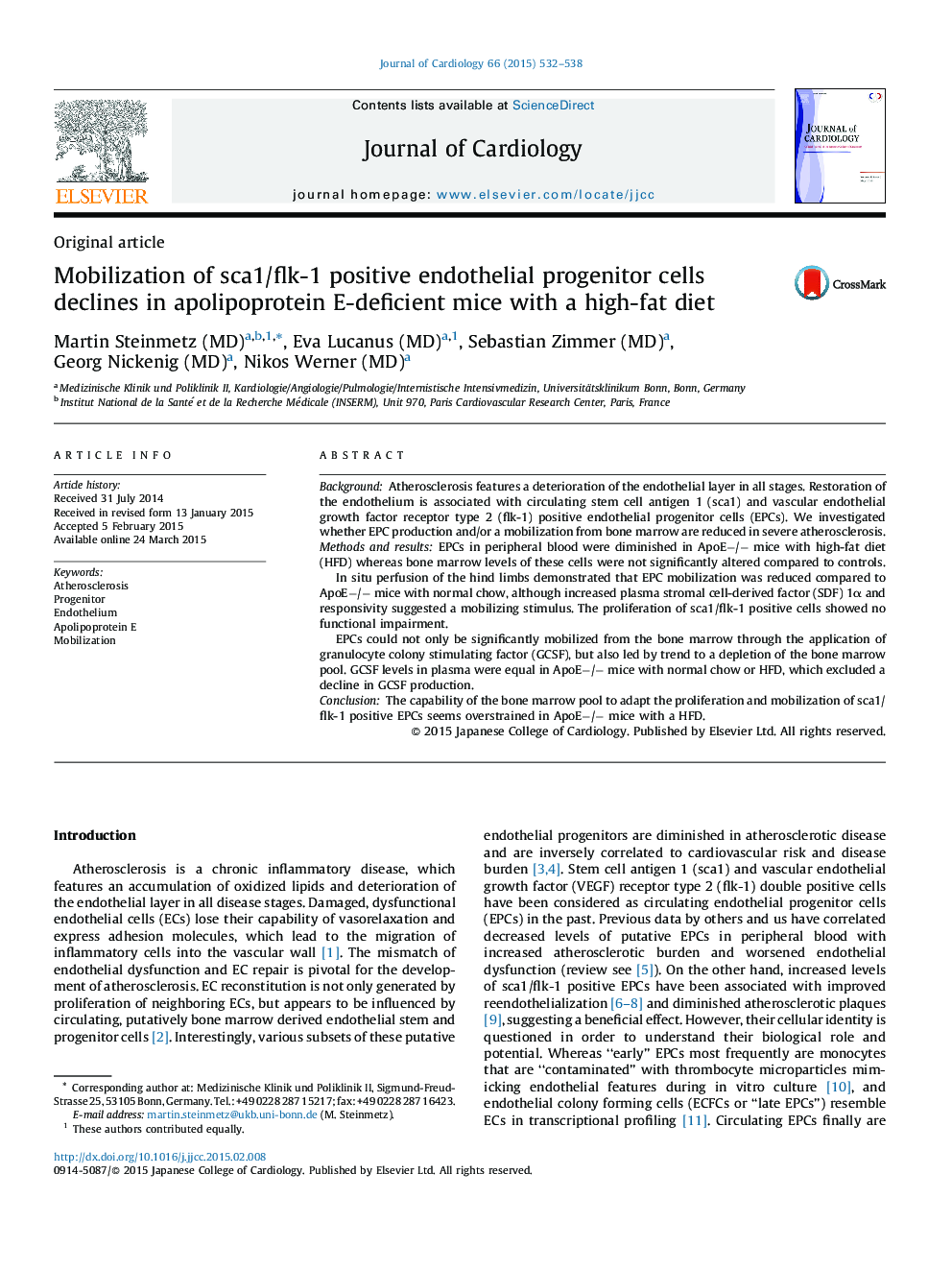| Article ID | Journal | Published Year | Pages | File Type |
|---|---|---|---|---|
| 2962997 | Journal of Cardiology | 2015 | 7 Pages |
BackgroundAtherosclerosis features a deterioration of the endothelial layer in all stages. Restoration of the endothelium is associated with circulating stem cell antigen 1 (sca1) and vascular endothelial growth factor receptor type 2 (flk-1) positive endothelial progenitor cells (EPCs). We investigated whether EPC production and/or a mobilization from bone marrow are reduced in severe atherosclerosis.Methods and resultsEPCs in peripheral blood were diminished in ApoE−/− mice with high-fat diet (HFD) whereas bone marrow levels of these cells were not significantly altered compared to controls.In situ perfusion of the hind limbs demonstrated that EPC mobilization was reduced compared to ApoE−/− mice with normal chow, although increased plasma stromal cell-derived factor (SDF) 1α and responsivity suggested a mobilizing stimulus. The proliferation of sca1/flk-1 positive cells showed no functional impairment.EPCs could not only be significantly mobilized from the bone marrow through the application of granulocyte colony stimulating factor (GCSF), but also led by trend to a depletion of the bone marrow pool. GCSF levels in plasma were equal in ApoE−/− mice with normal chow or HFD, which excluded a decline in GCSF production.ConclusionThe capability of the bone marrow pool to adapt the proliferation and mobilization of sca1/flk-1 positive EPCs seems overstrained in ApoE−/− mice with a HFD.
